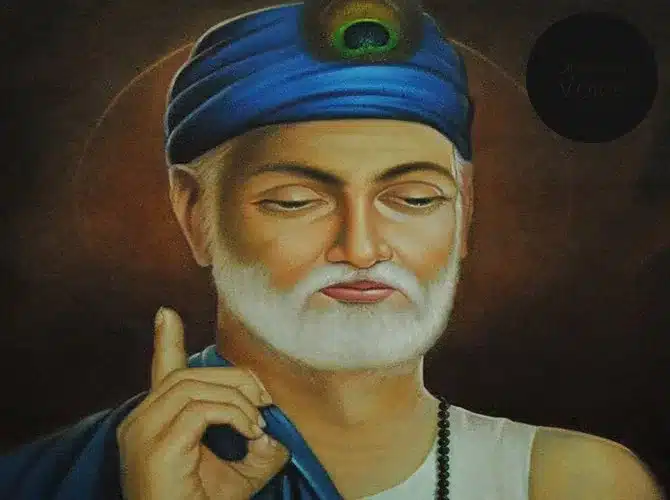Abdul Rahim: The Legacy of a Renaissance Man

Abdul Rahim (17 December 1556 – 1 October 1627), was a famous Hindi poet. He had an important place in the court of Akbar. Rahim was one of the Navaratnas of Akbar. Akbar gave him the title of ‘Khanakhana’ due to his bravery in the war of Gujarat.
Life and Career
Rahim was born on 17 December 1556, in Delhi, Mughal empire. His father Bairam Khan was an advisor and military general to Emperor Akbar as well as his mentor. His mom was a noblewoman from Mewat in Nuh (modern-day Haryana).After Bairam Khan was killed in Patan, Gujarat, Abdul Rahim, and his mom were invited to Ahmedabad. They were in Delhi then. Emperor Akbar soon invited them to the royal court. Abdul was treated like Bairam Khan, with the utmost respect, and given the title “Mirza Khan.” Abdul was also included in Akbar’s nine key ministers, known as “Navratnas.” They included poets, generals, intellectuals, and Hindu and Muslim nobles.
Akbar wanted India to be a secular society from the beginning of his rule. Abdul studied both Hindu and Muslim writings and adopted the same ideology. Since he was a kid, he’s loved poetry. When he grew up, he became one of the most prominent poets. He died on 1 October 1627, in Agra, Mughal empire.
Major Work
He was also made a military commander by Emperor Akbar and given 5,000 men to command. Abdul Rahim lived during the time of Ameer Khusro, another poet who was much more popular than Abdul Rahim. He was well-read and was also appointed as a tutor to Akbar’s son, Salim. In addition to Persian, Abdul Rahim also knew Sanskrit, so he wrote many of his “dohas” in that language.
Additionally, he translated ‘Baburnama‘ from Chagatai to Persian. It was about Babur, Akbar’s grandfather, who founded the Mughal Empire in India. Even now, his translation of ‘Baburnama’ is known as a great piece of writing. He also published two books on astrology in the Sanskrit language, titled “Khetakautukam” and “Dwatrimshadyogavali.”
He was also an ardent devotee of Krishna, the Hindu god. During one incident, Maharana Pratap captured his womenfolk, but they were returned to him safely. As a result, he started learning more about Hindu culture. He also became a devotee of Lord Krishna, for whom he wrote many poems and dohas.
He mostly wrote about Krishna in Hindi. It was a time when Hindu and Islamic cultures mingled, and Abdul Rahim excelled at combining the two. “Nirgun” and “Sagun” are two schools of devotional thinking. Abdul Rahim specialized in “Sagun,” which claims Krishna is a reincarnation of Lord Vishnu.
He also drew inspiration from ancient Hindu epics like the Ramayana, Bhagavad Gita, and Mahabharata. When Akbar died and Jehangir became king, Abdul Rahim served Jehangir for 21 years. He became one of the most prominent figures during the Mughal era. He also did charity in a unique way. Often, he fed the poor and donated money to charity.
Observer Voice is the one stop site for National, International news, Sports, Editor’s Choice, Art/culture contents, Quotes and much more. We also cover historical contents. Historical contents includes World History, Indian History, and what happened today. The website also covers Entertainment across the India and World.

